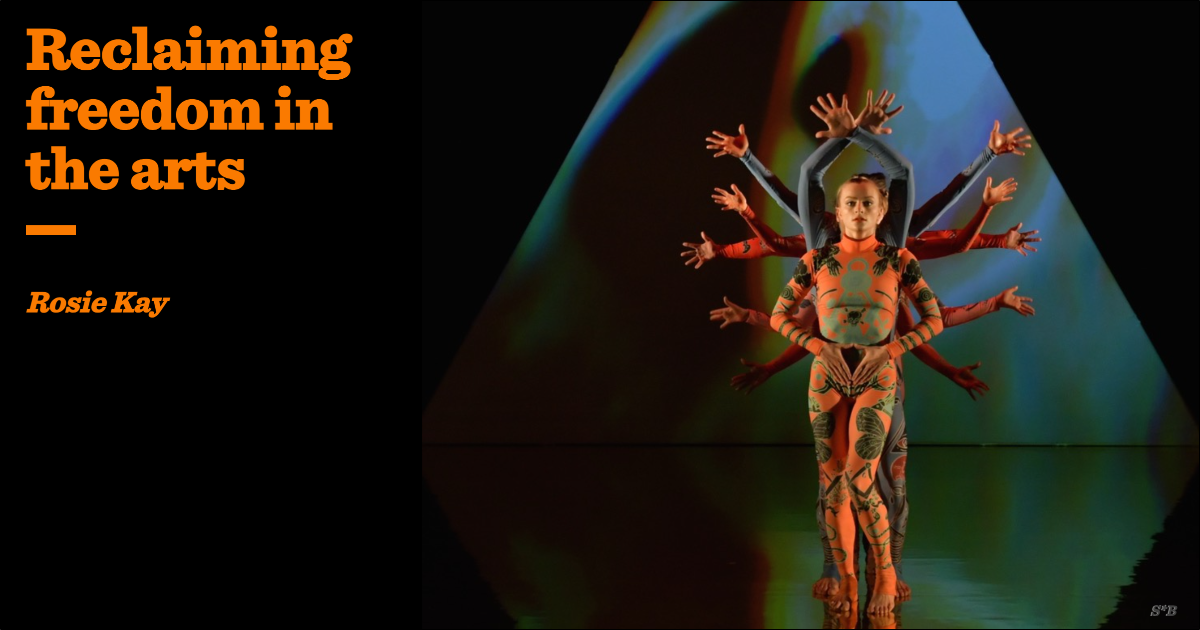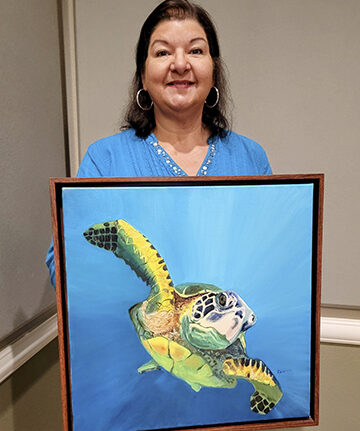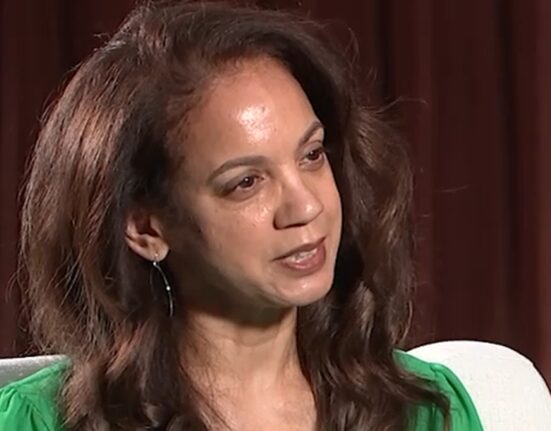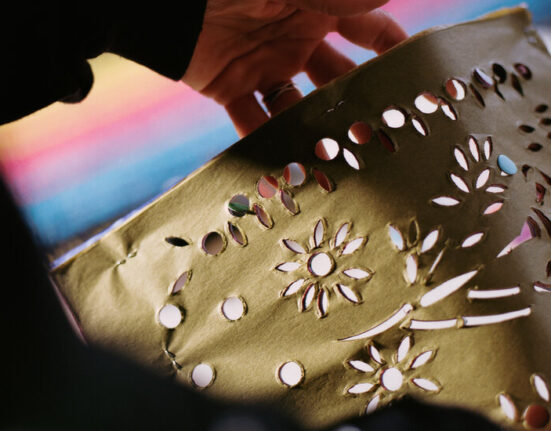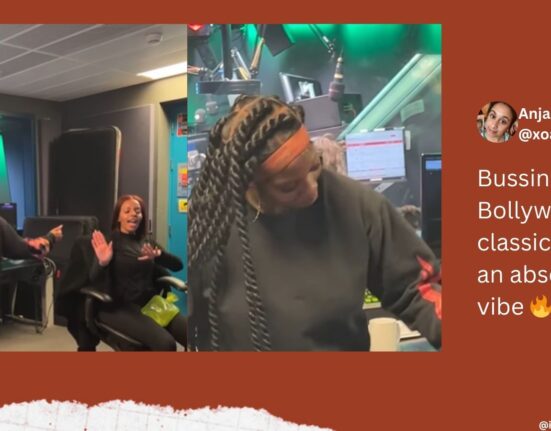Freedom in the Arts have launched a Manifesto prior to the July 4th UK elections, aiming to get the protection of freedom of expression higher up on the agenda of our prospective parliamentarians and influence future arts policy-making. Our main points are the protection of freedom of expression, stopping the bullying and intimidation of artists, bringing back impartiality and centering excellence over identity politics in the creation of arts.
I was lucky enough to grow up in a time when the UK arts were exciting, shocking and world-leading. Our theatre scene had revolutionised playwriting, our visual artists were like rock stars, and our choreographers asked difficult questions about the world we lived in. Seeing as much work as I could afford at the Edinburgh Festival as a teenager and as a student of dance in London, I expected to be shocked, to be pushed and often confused. I was inspired and the experience of this range of work put some strong beliefs into my creative core; that art was to explore and delve into the depths and heights of humanity, that art’s role was to challenge society and that artists themselves were dangerous, free-thinking individuals. I also saw such quality of work that the discipline to hone those skills has always been core to my artistic purpose. The arts were a place for the brave and intelligent, not for the lazy or the conformist.
Taking these beliefs into my professional career, I danced all over the world — in post-communist Poland, the USA, Germany and France. Returning to the UK in the early 2000s, I directly benefited from the increase in spending in the arts during the Blair administration. Working in the city of Birmingham as an “Artist in Residence”, in one year I was able to teach over 6000 young people across the West Midlands as well as perform and choreograph. I strongly felt that as an artist I could pursue my own ambitions and deliver high quality educational work to schools and colleges. I was a believer in the idea that there could be “great art for everyone” and I was grateful to an Arts Council who invested in my potential. I was determined to deliver.
I never took that investment and support for granted — if I was fortunate enough to receive tax payers or lottery players money, it was my job to have some commitment to being brave and making brave choices about my work and the subject matter of my work. A complex show, based on a 1929 poem “The Wild Party”, created a sexy, sweaty gem of a show at Edinburgh Festival in 2006. My trilogy of work about the bod -politic was designed to be things that “wouldn’t be talked about at a polite dinner party”; war, religion and politics. People in the arts may have slightly turned their noses up at me embedding an infantry battalion to research what became 5 SOLDIERS, but the UK’s role in the wars in Iraq and Afghanistan was being vastly overlooked within the arts world. Looking back, it was the first inclination that ideas were starting to solidify inside the arts elite that certain subject matters were “verboten”. Despite this, I never encountered the full chill of censorship, the pressing question was whether the work was any good or not?
Researching conspiracy theories for what became the work MK ULTRA, I interviewed teenagers and students on their perception of the news, politics and what is fake and what is the truth. One articulate student described how his generation felt; “we just don’t know who or what to believe any more” he told me. This lack of trust created a vacuum, and into this vacuum rushed a set of beliefs and values roughly grouped together as progressive ideologies, almost a cult-like set of beliefs that create sacred identities that cannot be challenged or even questioned. Each issue has a prescribed response, and these responses fit together, no matter how dissonant or contradictory.
The arts have truly fallen victim to this set of beliefs, which is deeply saddening for me, who believed that to challenge orthodoxy, dogma and groupthink was an essential quality of being an artist. There is a new set of blasphemy laws within the arts, and woe betide you if you speak out, deliberately, accidentally or if you are just perceived to not believe. The punishment is swift, brutal, total and in perpetuity; the punishment does certainly not fit the crime.
It was into this atmosphere that Freedom in the Arts was set up — led by Denise Fahmy and me, who, despite long and hugely successful careers in the arts, found ourselves attacked, harassed and subjected to attempted “cancellation”. We have collected over 30 case studies of artists facing bullying and intimidation in the arts, and their accounts make for harrowing reading. We also have several ongoing live cases, and artists now contacting us from around the world; their stories are remarkably similar and their life upheaval as total as in the UK. Often FITA or the individuals affected can not speak openly about their cases or treatment; due to legal reasons, confidentiality agreements, fear of loss of reputation and livelihood and the misguided hope that if they just shut up it might all go away.
The playbook of cancellation seems to have the following pattern; first there is the “mistake”; saying the wrong thing, forgetting a pronoun, defending women’s rights, liking a tweet on X, even responding to official requests for feedback; a trap is set and someone, often with good intentions walks right in and is trapped. I’ve worked supporting artists whose work has been seen as “problematic” — attracting warnings, interference and cancellations in case of a vague and sinister “harm to communities”. It will not surprise you that the majority of our cases are women, who seem to be on the receding end of the most violent and abusive teatime, but many men have contacted FITA as well. Some have lost their entire livelihoods and reputations in less than a week, artists have been sacked, dropped, quietly stonewalled. Artists have lost representation and speaking opportunities. Funding has been revoked or consistently denied despite outstanding track records. All this has huge personal and financial effects on anyone working in the arts; they are their jobs, they often have loved their art form and sacrificed a lot to pursue it, and the shock and vitriol poured at these individuals often creates issues of physical and mental ill health.
Freedom in the Arts thought long and hard about our short Manifesto — while informed by in-depth knowledge of the UK arts funding structure, we also wanted our points to be understood by the general public. At times writing it, I joked that it felt like stating the “bleeding obvious!” Our points are simple, moderate and straightforward.
Freedom of expression and impartiality are the bedrock of our thriving culture, and we lose them at our peril
To stop the culture of bullying, FITA asks the Government to support the arts’ protection of artistic freedom and restore the impartiality of institutions, enabling individuals, artists and audiences to express themselves freely. To ensure cultural funding and support bodies are impartial, services should be delivered under the Civil Service Code whilst maintaining the arm’s length principle from Government.
FITA demands Government centres artistic excellence over identity, and that mechanisms that have too heavily focussed on identity are repealed. To better nurture quality and talent, excellence in arts learning is more beneficial than over-stretched access opportunities.
FITA advocates for greater accountability in arts funding and a reduction in arts administration expenditure to increase investment in arts production. FITA calls for the strengthening of artists’ legal protection to bring about a fairer arts sector.
I truly believe that great art that speaks of today cannot be made in a climate of fear. Art that has been authorised by a committee can very easily become propaganda. Not all artists want to make art that is political — nor do they want their beliefs to lead to bullying. Freedom of expression and impartiality are the bedrock of our thriving culture, and we lose them at our peril. We call for everyone in the arts to get behind an exciting and optimistic future that champions talent and excellence.

